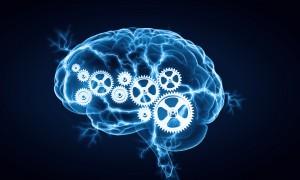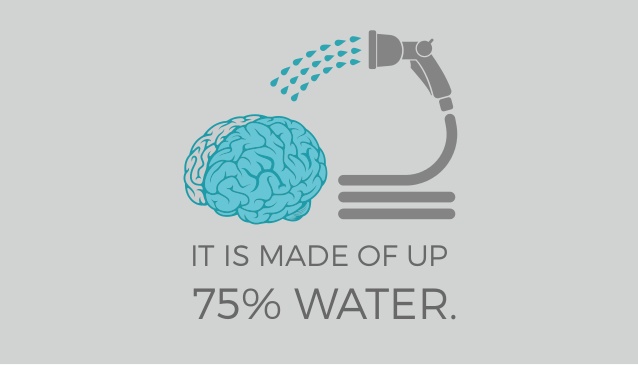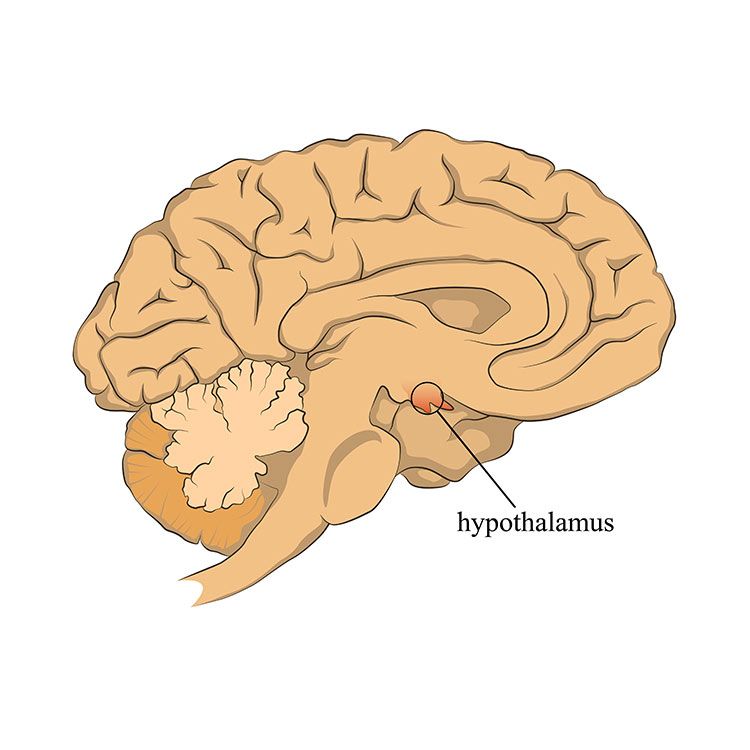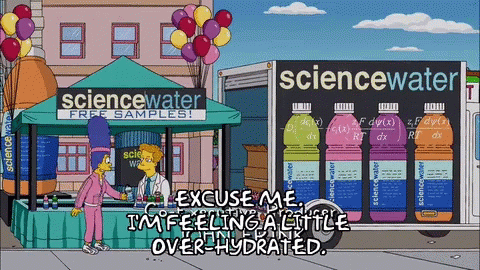Watering the Brain – Hydration and Cognitive Function
- Case study
-
Jun 04
- Share post

Have you ever felt much better after drinking a glass of water while studying? Did you feel less tired, and more focused almost instantly? Well, that is no co-incidence. We all know dehydration affects the body negatively in lots of ways. And the brain is no exception either, it needs water to work. Read on to understand how lowered fluid intake influences your performance, and for tips on how to stay hydrated for optimum performance.
How Dehydration Affects the Brain
The human brain alone is made up of 75 percent water and needs water to sustain its normal functioning. In fact, studies show that even mild dehydration (less than 2 percent dehydration of the body weight) leads to less effective functioning of the brain. This includes decreased cognitive functions, like attention, concentration and rate of processing information. It might also lead to mood changes, irritability and headaches. In another study, it was shown that participants who drank water before a cognitive performed 14% better than ones who didn’t.
The Basic Mechanism Behind Thirst
The body undergoes several changes and gives several cues when it starts feeling thirsty and is progressing towards dehydration. When water levels drop in your body, first of all, the volume of blood drops. This leads to a drop in blood pressure. Also, our body cells need a fine balance between the concentration of minerals and ions, relative to the amount of water. This relative concentration, known as osmolarity, keeps the cell functioning proper. In fact, cells typically shrink when there is a change in the osmolarity. Other functions affected when there are less fluid levels are waste elimination, lubrication at joints, and transport of nutrients.

All these changes are coordinated with the “thirst center” of the brain (technically known as the “lamina terminalis”). The lamina terminalis is a specialized center – unlike the rest of the brain, lots of the cells do not have a blood-brain barrier. The blood-brain barrier protects parts of the brain from bacteria, virus, and toxins, but also blocks off communication with the other parts of the body. These particular cells of the lamina terminalis receive cues from different parts of the body, including the heart, kidney, and mouth. These signals are passed to the hypothalamus, making the body adjust the heart rate, kidney functioning rate, and blood pressure to the according to the fluids available in the blood. Eventually, the brain you sends you a feeling of being thirsty.

So technically, by the time you’re feeling thirsty, your body has already been trying its best to adjust fluid levels all along. Your brain is letting you know now. That’s why expects say it’s better to drink water in regular intervals, and not wait until you’re thirsty.
What you can do to stay Hydrated
It is recommended that women have a fluid intake of 2 to 2.7 liters of per day; men should drink 2.5 to 3.7 liters a day. The exact amount of fluid you need to take depends from individual to individual on several factors like the level of physical activity and medications. During summertime, as well as if you are person works out, increase your water intake to make sure you don’t get dehydrated.

To stay hydrated, drinking plain water isn’t the only way. Our diet and exercise also play an important role. Include water-rich, mineral laden foods like watermelon, cucumbers, oranges, tomatoes in your daily diet – raw or as juices. Avoid beverages with high sugar amounts, artificial sweeteners and flavors. Though they might serve the purpose of keeping you hydrated, they also have their own health risks. You could also increase the stored amount of water in the body by doing exercises that increase muscle mass.
Right Skill = Bright Future
It is also important to remember not to go overboard about your water intake. Overhydration could lead to impaired cognitive function and an imbalance of sodium levels in the body.

The Bottom Line
Water is essential for the optimum functioning of the brain. Next time you are study, or are attempting an exam, make sure you have a bottle of water with you. Be sure to take at least small sips in intervals, you’ll be sure to notice a difference in your performance.
Stay hydrated, stay healthy, and stay safe!






